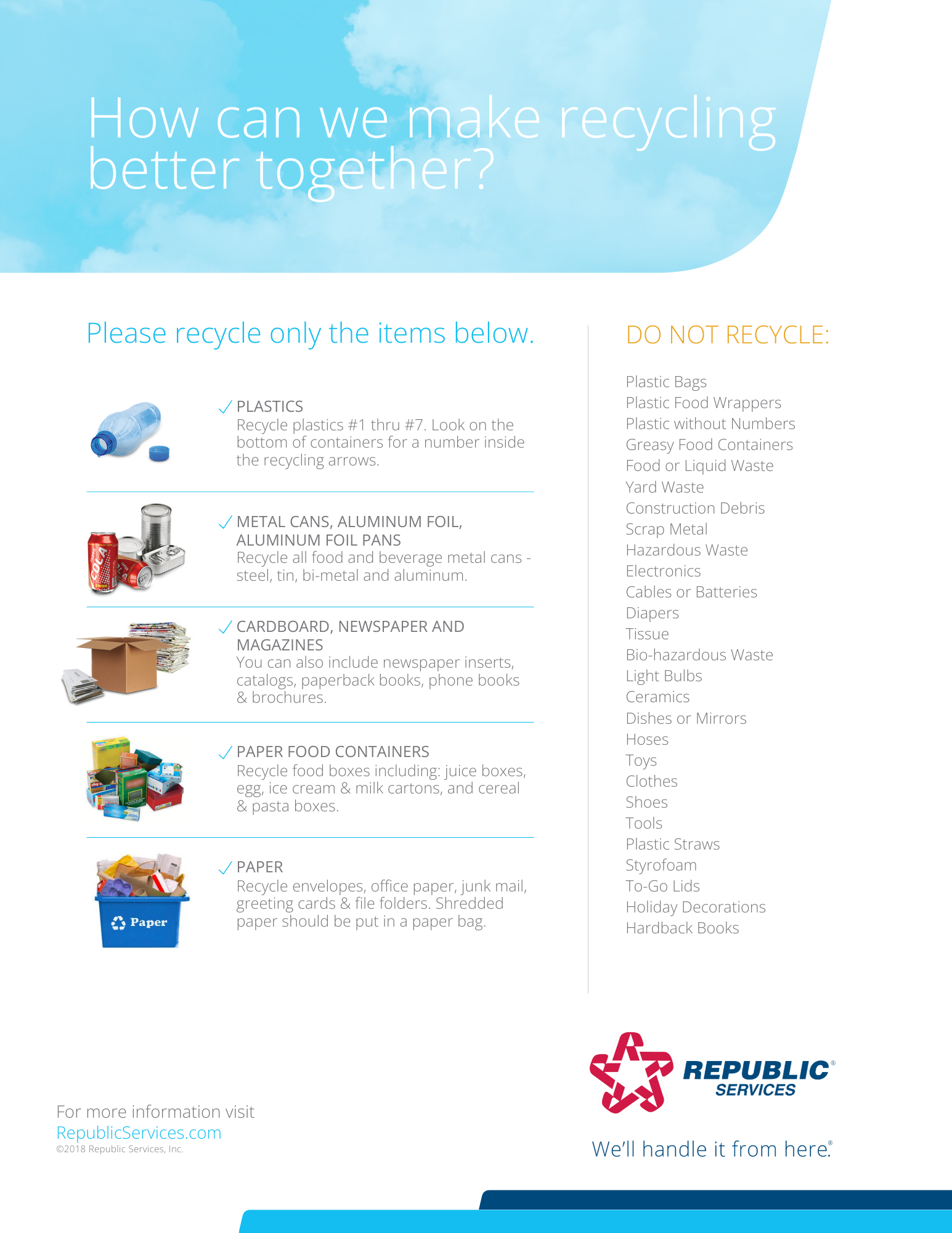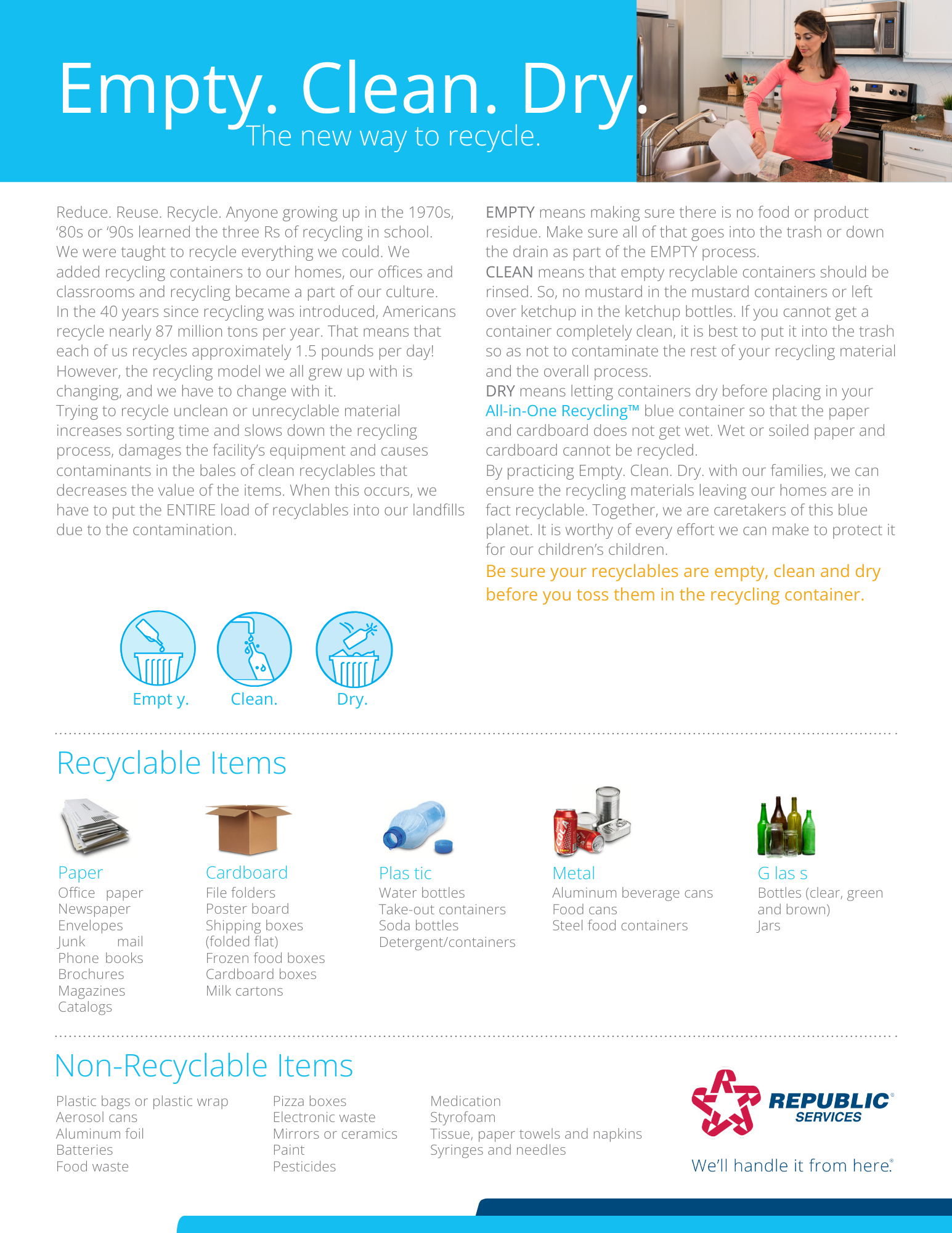Greening Your Home

One goal of the Environmental Advisory Council is community education. What better way then to start at home.
What are you doing at home to help you possibly save money, be more efficient, and help reduce the carbon footprint?
How to Make Your Home More Energy Efficient
- Change your light bulbs to LEDs.
- Wash your clothes in cold water if possible.
- Air seal your home.Sealing cracks, gaps and leaks and adding insulation can save up to 10% on home heating and cooling costs.
- Clean or replace all filters in your home regularly. Dirty filters make your system work harder and run longer than necessary.
- Use your microwave instead of your stove when cooking.
- Defrost your refrigerator and freezer before ice buildup becomes 1/4-inch thick to ensure your appliances are running efficiently.
- During warmer months, close blinds, shades and drapes on the sunny side of your home to help keep your home's temperature cooler and reduce the work for you AC. Open shades during cooler months to let the sun warm your home.
- Don't peek in the oven while baking! Every time you peek, the temperature can drop 25°F, making your oven use more energy to bring the temperature back up.
- Use natural light when possible.
- Control your fixtures with a photocell or a timer to assure dusk-to-dawn only operation of your outdoor lights.
- Don't leave your electronics on all day long. Only turn on your computer, monitor, printer and fax machine when you need them.
- Set your thermostat to 78°F in the summer and 68°F in the winter - every degree of extra heating or cooling will increase energy usage 6% to 8%. Setting your thermostat to a lower temperature than normal will not cool your home faster.
- Using your ceiling fan will allow you to raise the thermostat setting about 4°F with no reduction in comfort.
- Refrigerators and freezers actually operate most efficiently when full, so keep your refrigerator and freezer as full as possible (using water bottles if nothing else). Be careful about overfilling them as this will reduce airflow and cause the appliance to work harder.
- Using dishwashers and clothes washers/dryers at night will keep the house cooler, reduce strain on the power grid during the peak usage hours of 4 PM and 6 PM and reduce the chance of an emergency!
- Turn off heated dry on your dishwasher and air dry instead.
- Set your refrigerator temperature to the manufacturer's recommendation to avoid excessive cooling and wasting energy.
- Don't leave bathroom or kitchen ventilation fans running longer than necessary. They replace inside air with outside.
- Replace your windows. If your home has single-pane windows, consider replacing them with more energy efficient windows, or adding solar shades or tinting film.
- Install a programmable thermostat that will automatically adjust the temperature according to your schedule.
- Turn off the lights when they're not in use. Lighting accounts for about 12% of a typical residential utility bill.
- Don't leave your mobile phone plugged in overnight. It only takes a couple of hours to charge.
- Turn off the oven a few minutes before cooking time runs out. Your food will continue to cook without using the extra electricity.
- Watch your appliance placement. Avoid placing appliances that give off heat, such as lamps or TVs, near a thermostat.
- Dress for the weather. When you're at home, dress in warm clothing in the winter and cooler clothing in the summer to stay comfortable without making your heater and AC work harder.
PECO Energy Assessment
Has your heating bill this winter been higher than expected? Are you dreading the electric bill this summer after running your AC all summer? Did you know that PECO offers a low-cost Energy Assessment that can provide a big return on your future energy bills? Visit the PECO website to schedule an assessment today. You will get professional advice from a PECO energy advisor, free energy-saving products like LED bulbs and smart power strips, plus a personalized report with tips for lowering your energy costs and rebates on weatherization and heating/cooling equipment.
https://www.peco.com/ways-to-save/for-your-home/energy-assessments/energy-assessment
RADON IN THE HOME
An estimated 40% of Pennsylvania homes have higher levels of radon than national safety standards, due to the state’s geology. However, residents can perform a simple test to detect this gas. Radon is the second leading cause of lung cancer with about 21,000 deaths per year.
Radon is an odorless, colorless radioactive gas that occurs naturally from the breakdown of uranium in soil and rocks and enters homes through cracks in the foundation or other openings. High levels of radon tend to be found in basements, but the gas can be found anywhere in the home.

